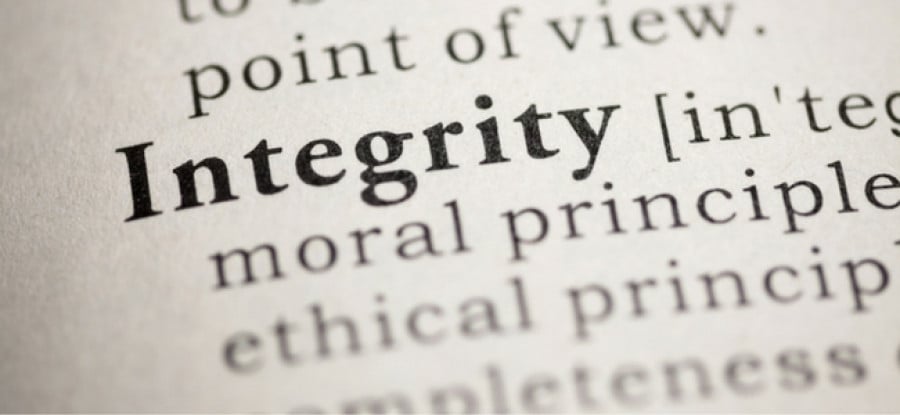Is whistleblowing in sport fit for purpose? Part 1 – The current picture

This two-part article explores whether the existing cultures and regimes of whistleblowing in sport are fit for purpose.
Part 1 below explains the importance of whistleblowing in sport and sets out the current legal protections offered in cycling, football and athletics. Specifically, it looks at:
- The importance of whistleblowing in sport
- The prevailing culture: breaking the “Omerta” (code of silence)
- Existing protections for whistleblowers
- Sport Specific Rules and Policies
- Cycling
- Football
- Athletics
- Pan-Sports Rules
- Local Employee/Labour Protections
- Sport Specific Rules and Policies
Part 2, available here, asks if enough is being done and explores what further steps can be taken to encourage whistleblowing in sport in the context of the Lance Armstrong1, FIFA2 and Russian Anti-Doping Agency (“RUSADA”) scandals3.
THE IMPORTANCE OF WHISTLEBLOWING IN SPORT
The integrity of sporting endeavour and competition is critical to the popularity and success of sport. "Integrity" is, of course, a broad term and a lack of integrity can encompass all forms of corruption and cheating, from doping and physical abuse; through to match fixing and tapping up. In his 2015 speech, David Howman, the World Anti-Doping Agency ("WADA") Director General said:
"The intrinsic values of sport, often referred to as “the spirit of sport” is the celebration of the human spirit, body and mind, and is characterized by values such as ethics, honesty, respect for rules, self-respect and respect for others, fair play and healthy competition. If sport is void of these values (and others) it might be argued it is no longer sport".4
Whilst specifically in relation to doping, this comment could equally refer to other breaches of the integrity of sport. If the participants in sport cheat; the supporter, the spectator and the sponsor are cheated. This result is in addition to the other risks associated with a lapse in integrity, notably the health risks to athletes associated with doping.
One of the principal ways in which a lack of integrity in sport can be brought to the attention of regulators, other participants and the public is by participants, their coaches, agents, team mates or anyone associated to a competitor blowing the whistle on malpractice. It is therefore of the utmost importance that sport creates a legal mechanism, to promote, encourage and protect whistleblowers. Promoting a culture that encourages individuals with legitimate concerns to raise them at the earliest possible stage (either internally or externally) without fear of intimidation, retribution or recrimination from the sport itself should become one of the foundations upon which any sport can seek to maintain its integrity.
CULTURE: BREAKING THE "OMERTA"
Whilst it is recognized that within any team dynamic the code of silence can be important for the protection of tactics or technological development, this can of itself make it easier to cover up, or more difficult to speak out. To build a culture that encourages whistleblowing, the importance of integrity requires that this concept must be pre-eminent over any code of silence. The so-called "omerta"5 (code of silence) in professional cycling is a recent example of an extreme inhibitor in one sport that enabled a corrupt culture to exist, if not flourish. In the wake of the United States Anti-Doping Agency ("USADA") Report6 on Lance Armstrong (which itself relied heavily on what USADA described as a number of "courageous riders" who were willing to break the "omerta") ("USADA Report"), the Union Cycliste Internationale ("UCI") commissioned the Cycling Independent Reform Commission ("CIRC") to produce a Report7 on the causes of the "pattern of doping" and the allegations against UCI and other bodies and officials ("CIRC Report")8. The CIRC Report, published in 2015, quoted the pertinent evidence of one rider who stated:
“At the moment, confessing is not encouraged and it is then difficult to find another team. Effectively a life ban is imposed by the teams (not by the relevant authority). Teams run by the same people - all in cycling for a long time and part of the omerta. At the moment the incentive to confess is zero.”9
Even more disconcerting for professional cycling were the allegations levelled at senior members of the UCI itself. For example, the CIRC Report noted that:
"Pat McQuaid [the then UCI President] is alleged to have qualified Tyler Hamilton and Floyd Landis, the two cyclists whose revelations did a lot to bring Lance Armstrong down, as “scumbags"."10
The Report summarised:
"the general attitude [of the UCI] in the context of disciplinary sanctions was to be strict on whistleblowers. There was no general strategy to actively encourage whistleblowing. Instead, riders reported that the message sent out by UCI leadership in case they went public was ambiguous and hostile."11
Whilst specific to professional cycling in the US (and historic), such a situation is clearly unacceptable, inhibits whistleblowing and is an environment that will enable corruption to become endemic. The steps taken by UCI to improve whistleblowing protections in light of the CIRC Report are discussed further below.
There are other examples of the culture of sport being tarnished by the same issues. The whistleblower, Pheadra Almajid, who raised concerns over the bidding process for the Qatar 2022 Football World Cup described the "culture of self-protection" that she encountered12. She raised a complaint with FIFA's Disciplinary Committee that FIFA had breached confidentiality promised to her and in doing so had put her safety at risk. The Disciplinary Committee dismissed her complaint that Ms Almajid described as “a transparent avoidance of a clear violation of its own rules”13.
It is vital to ensure that a culture exists that encourages whistleblowers. Sport must be accepting of and recognise the intrinsic value of whistleblowers in cleaning up sport. In addition to culture, it is critical that sports offer internal and legal protections for whistleblowers. What are some examples of existing protections for whistleblowers in sport?
EXISTING PROTECTIONS FOR WHISTLEBLOWERS
There are three primary sources of whistleblowing protection in sport:
Sport Specific Rules and Policies
As a matter of good practice, each national and international federation, regulator, league, club or other institution or association should adopt a formal and clear whistleblowing policy setting out its position in relation to whistleblowing. There is however currently no obligation to do so. The examples of cycling, football and athletics are discussed briefly below.
Cycling
To continue reading or watching login or register here
Already a member? Sign in
Get access to all of the expert analysis and commentary at LawInSport including articles, webinars, conference videos and podcast transcripts. Find out more here.
- Tags: All-Russian Athletics Federation (ARAF) | Anti-Doping | Athletics | British Cycling | Cycling | Cycling Independent Reform Commission (CIRC) | European Club Association | European Professional Football Leagues (EPFL) | FIFA | FIFPro | Football | Integrity | International Association of Athletics Federations (IAAF) | International Cycling Union (UCI) | International Olympic Committee (IOC) | Russia | Russian Anti-Doping Agency (RUSADA) | The FA | UCI Anti-Doping Rules | UCI Code of Ethics | UCI Rules and Procedures | UEFA | UK Anti-Doping (UKAD) | United Kingdom (UK) | United States of America (USA) | US Anti-Doping Agency (USADA) | WADA Independent Commission | Whistleblowing | World Anti-Doping Agency (WADA) | World Anti-Doping Code (WADC)
Related Articles
- Whistleblowing in Sport – Part 1: Maintaining Public Confidence In The Integrity Of Sport
- Whistleblowing in Sport – Part 2: Investigations and Disciplinary Proceedings
- Investigating systemic doping in sports: How independent commissions are established and run
- Is whistleblowing in sport fit for purpose? Part 2 – Analysis and recommendations
Written by
Chris Davies
Chris is a commercial litigator in Burges Salmon's dispute resolution team with specialised experience in sports sector disputes. He has advised players, agents, clubs, national and international associations and governing bodies.
Jack Mitchell
Jack Mitchell called to the Bar in 1994, is a Barrister at Old Square Chambers. OSC has a reputation for success in football and rugby litigation issues, and is a popular choice for claimants and defendants in all sports including athletics, boxing, motor racing, horse racing and cycling. OSC advise players, coaches, agents, physiotherapists and team healthcare professionals on all employment and contractual matters. More information can be found at https://www.oldsquare.co.uk/practice-areas/sport .


 Global Summit 2024
Global Summit 2024